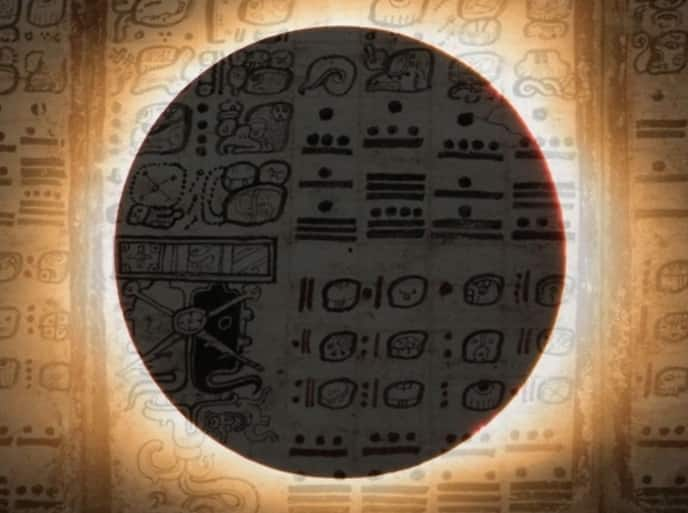Science
Researchers Uncover Ancient Maya’s Precise Eclipse Predictions

Scientists have revealed how the ancient Maya civilization skillfully predicted solar eclipses for centuries through their advanced lunar calendar. This research highlights the remarkable astronomical knowledge and mathematical precision that characterized Maya civilization, further emphasizing their contributions to ancient science.
The study, conducted by researchers at the University of California, Berkeley, showcases the Maya’s understanding of celestial events, particularly their ability to forecast solar eclipses with impressive accuracy. Using a sophisticated system that combined lunar cycles, the Maya were able to anticipate when eclipses would occur, demonstrating a level of astronomical skill that many modern cultures may not fully appreciate.
Exploring the Lunar Calendar
The findings suggest that the Maya developed a detailed lunar calendar that allowed them to track the movements of the moon. This calendar was not merely a tool for keeping track of time; it was essential for planning agricultural activities and religious ceremonies, which were often tied to celestial events.
Researchers examined historical records, inscriptions, and codices from various Maya sites, including Tikal and Copán, to understand how this ancient civilization harnessed their knowledge of astronomy. The study, published in 2023, provides new insights into the methodologies employed by the Maya to achieve such precise predictions.
The ability to forecast solar eclipses was not just a scientific achievement; it held significant cultural importance for the Maya. Eclipses were often seen as powerful omens, affecting everything from agricultural cycles to political decisions. Therefore, having a reliable method to predict these events was crucial for maintaining social order and religious practices.
Implications for Modern Astronomy
This research not only sheds light on the ancient Maya’s astronomical capabilities but also offers valuable lessons for modern science. The mathematical approaches used by the Maya can inspire contemporary astronomers in their quest to understand celestial mechanics. By studying ancient methods, scientists may uncover new perspectives on current astronomical phenomena.
The precision of the Maya’s calculations suggests a deep understanding of the complexities of lunar and solar movements. This knowledge, crafted over generations, reflects a sophisticated integration of observation, mathematics, and cultural significance.
As researchers continue to explore the depths of ancient astronomy, the Maya civilization remains a beacon of ingenuity. Their achievements in predicting eclipses serve as a testament to human curiosity and the pursuit of knowledge that spans across millennia.
The findings of this study encourage a reevaluation of how we view ancient civilizations and their contributions to science. The Maya’s ability to predict solar eclipses not only showcases their remarkable skills but also highlights the connection between astronomy and culture throughout history.
-

 World4 months ago
World4 months agoSBI Announces QIP Floor Price at ₹811.05 Per Share
-

 Lifestyle4 months ago
Lifestyle4 months agoCept Unveils ₹3.1 Crore Urban Mobility Plan for Sustainable Growth
-

 Science3 months ago
Science3 months agoNew Blood Group Discovered in South Indian Woman at Rotary Centre
-

 World4 months ago
World4 months agoTorrential Rains Cause Flash Flooding in New York and New Jersey
-

 Sports3 months ago
Sports3 months agoBroad Advocates for Bowling Change Ahead of Final Test Against India
-

 Top Stories4 months ago
Top Stories4 months agoKonkani Cultural Organisation to Host Pearl Jubilee in Abu Dhabi
-

 Science4 months ago
Science4 months agoNothing Headphone 1 Review: A Bold Contender in Audio Design
-

 Top Stories4 months ago
Top Stories4 months agoAir India Crash Investigation Highlights Boeing Fuel Switch Concerns
-

 Sports3 months ago
Sports3 months agoCristian Totti Retires at 19: Pressure of Fame Takes Toll
-

 Business4 months ago
Business4 months agoIndian Stock Market Rebounds: Sensex and Nifty Rise After Four-Day Decline
-

 Politics4 months ago
Politics4 months agoAbandoned Doberman Finds New Home After Journey to Prague
-

 Top Stories4 months ago
Top Stories4 months agoPatna Bank Manager Abhishek Varun Found Dead in Well









